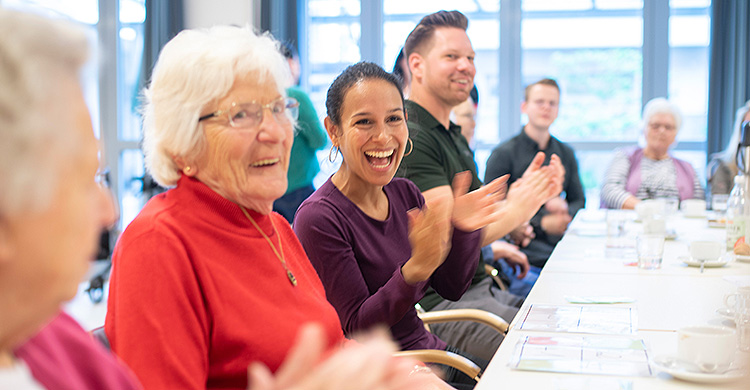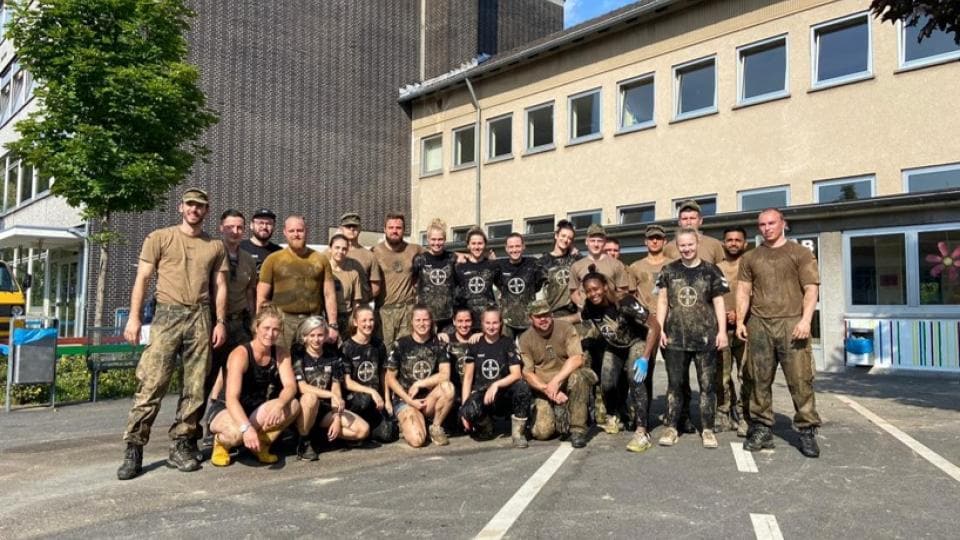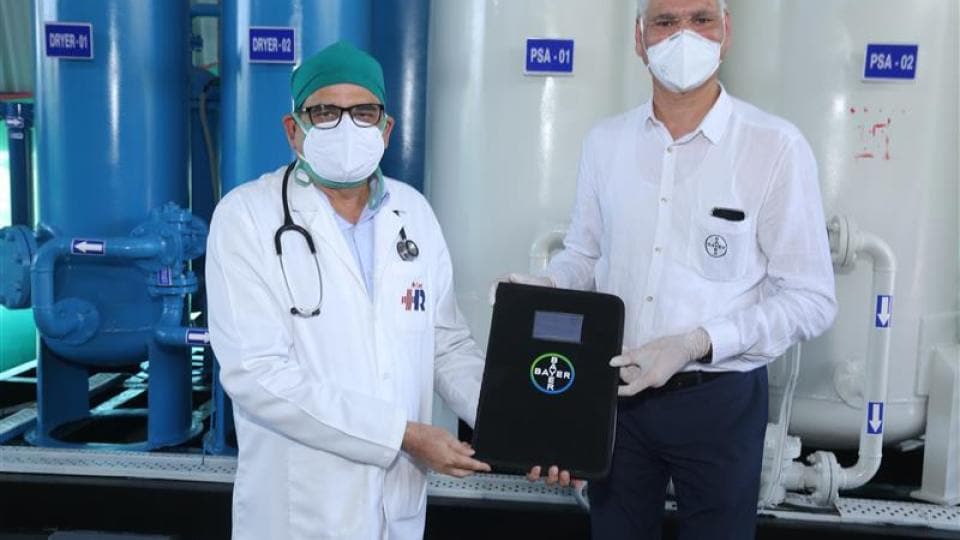A Helping Hand For Refugees

Mohammad Mahdi Hassani is young, talented and ambitious. Like many other refugees, he left his home country out of a desire to live in peace and learn a trade. Bayer has a given him a future.
Mohammad Mahdi Hassani longed to live in a safe environment and earn money. Born in Afghanistan, he grew up surrounded by war. His father was a teacher, his mother a housewife. After graduating from high school in his country, he started a degree in chemistry. He managed to complete five semesters before the terrorists came, and with them the death threats. He recalls how they coerced him: “They wanted me to join them because they need educated people in their organization. If you don’t play along, you’re sure to be killed.” He had to make a choice. Should he join them and risk being responsible for terrorist attacks? Should he fear for his life? Or flee?
In fall 2015, he left his home country, arriving in Germany not long afterwards. He first came into contact with Bayer two years later. With the company’s help, he attended language courses and shadowed staff at the Chempark in Leverkusen, where he eventually started his training as a chemical laboratory technician in 2018.
- 1/5
- 2/5
- 3/5
- 4/5
- 5/5





Guiding him on this journey were people at Bayer like Claudia Binder, who works at the Leverkusen site and for the past two years has supervised the integration of refugees. In charge of foundation courses, Binder holds discussions with refugees and brings young talent on board. This approach is successful thanks to the network she has built up over time. Binder keeps in touch with city authorities, institutions and refugee shelter managers, who suggest young people to her. She then invites the youngsters to placement tests and often also speaks with candidates in person beforehand. “Some of these young people are nervous. So it helps for me to introduce myself. It puts them at ease.”

Binder has already been praised by the company for her dedicated efforts on multiple occasions. “The project is important for us – not least as it’s an opportunity to forge ties with skilled workers,” she explains. In 2018, for example, 28 young refugees began working at the Berlin, Wuppertal and Leverkusen sites. This figure is on top of the 22 who have qualified for an apprenticeship via the pre-training program.
Safe from harm and with a promising career ahead of him, Mohammad Mahdi Hassani is free to dream again. He’d like to do a PhD in chemistry – and become a world champion in taekwondo. Incidentally, he’s already scooped a few awards in the sport.

Bayer provides support across Germany
Language: In Leverkusen, refugees can take part in language courses to prepare for the world of work. Every three months since 2015, Bayer has offered a three-month foundation course for groups of 20 young refugees. The aim of the course is for participants to improve their language skills from B1 (as defined by the Common European Framework of Reference for Languages) to B2 level. The latter is the level stipulated by the Chambers of Industry and Commerce (IHK) for commencing an apprenticeship in Germany.
Career guidance: The foundation course also offers an initial insight into working life, including a three-week shadowing opportunity in the training center at the Chempark Leverkusen site.
Supervision: During the course, refugees are supported by specially trained educational social workers and assigned a contact person within the company.
Apprenticeships via the pre-training program: Those who successfully complete the foundation course can apply for Bayer’s pre-training program. Bayer has reserved a number of places on its support program aimed at young people for refugees wishing to undertake vocational training. Besides Leverkusen, refugees also receive support through the pre-training program in Wuppertal and Bergkamen. Between 2015 and 2018, more than 350 participants in Leverkusen and Berlin substantially improved their German language skills by attending foundation courses, and gained their first insights into professional life in Germany.





















